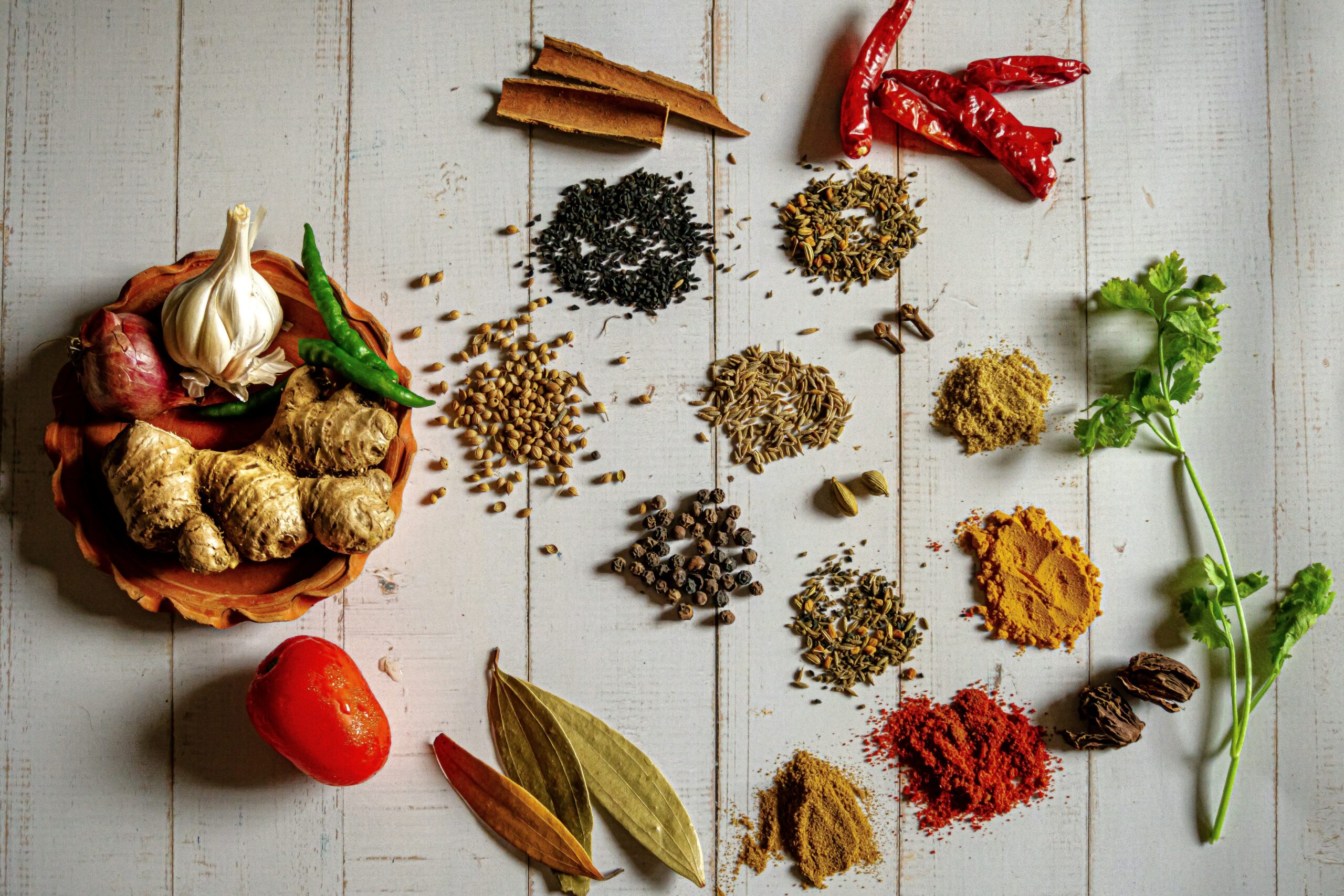Spices are natural substances derived from plants’ seeds, roots, bark, or other parts, which are used to enhance the flavor, aroma, and color of food. They have been prized for centuries for their culinary, medicinal, and preservative properties. Here are some key points about spices:
- Variety: There is a vast array of spices available, each offering its own unique flavor profile and culinary uses. Common spices include pepper, cinnamon, cloves, nutmeg, ginger, turmeric, cumin, coriander, cardamom, paprika, and many more.
- Flavor Enhancement: Spices add depth, complexity, and character to dishes, transforming ordinary meals into extraordinary culinary experiences. They can impart warmth, sweetness, heat, earthiness, freshness, and other flavor dimensions to food.
- Cultural Significance: Spices have played a significant role in culinary traditions and cultural practices around the world for centuries. They are often deeply intertwined with cultural identities, rituals, celebrations, and historical trade routes.
- Health Benefits: Many spices are not only flavorful but also packed with beneficial compounds that promote health and well-being. For example, turmeric contains curcumin, a powerful anti-inflammatory and antioxidant compound, while cinnamon may help regulate blood sugar levels.
- Preservation: Historically, spices were prized for their ability to preserve food and mask off-flavors in less-than-fresh ingredients. They were essential for preserving meats, pickling vegetables, and preparing long-lasting pantry staples.
- Medicinal Uses: Spices have been used for their medicinal properties in traditional medicine systems around the world. They have been utilized to treat ailments ranging from digestive issues and respiratory problems to pain relief and wound healing.
- Global Trade: The spice trade has been a driving force in shaping world history and economics. Historically, spices such as pepper, cinnamon, cloves, and nutmeg were highly prized commodities that fueled exploration, colonization, and global trade routes.
- Culinary Applications: Spices are used in a variety of culinary applications, including seasoning, marinating, flavoring sauces and soups, pickling, baking, and creating spice blends or rubs for meat, poultry, and seafood.
- Quality and Storage: To maintain optimal flavor and potency, spices should be stored in airtight containers away from heat, light, and moisture. Ground spices typically have a shorter shelf life than whole spices and should be replenished regularly.
In summary, spices are not only essential for enhancing the taste and aroma of food but also offer a wealth of cultural, historical, medicinal, and culinary significance.

